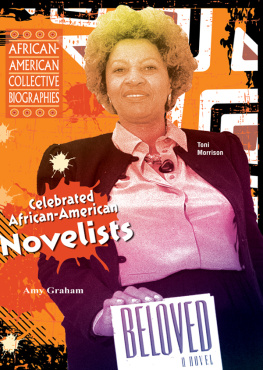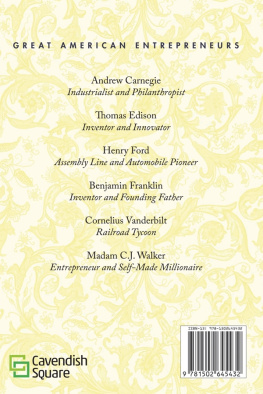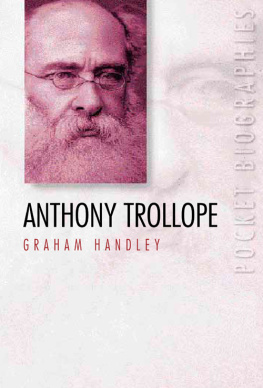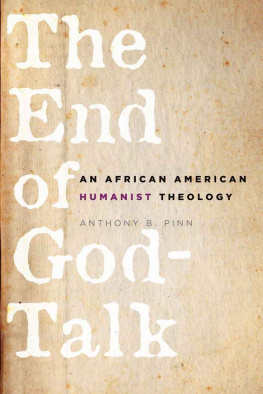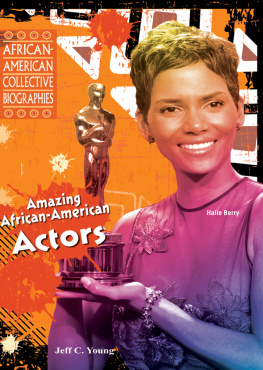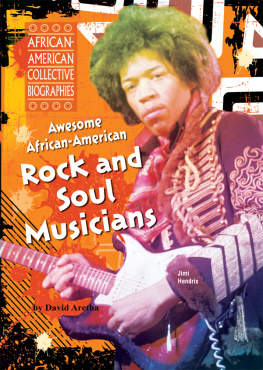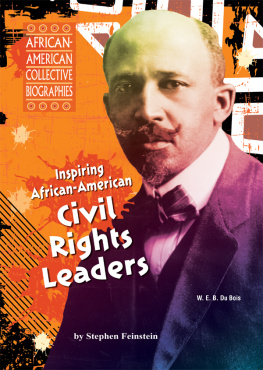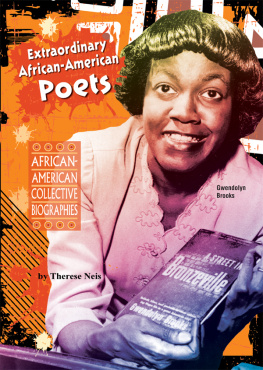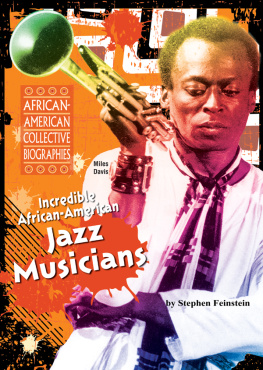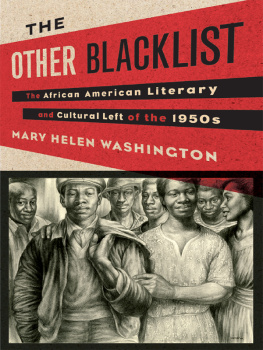Novel Ideas
Novels are works of imaginative art that represent their authors ideas and attitudes. When a book reaches a wide audience, it introduces society to new ideas. The authors in Celebrated African-American Novelists helped promote understanding of the black experience in America. Read about nine great writers, including Zora Neale Hurston, Richard Wright, and Toni Morrison.
This book is a handy introduction to the black experience in America as seen through the imagination of outstanding authors.
Russell Adams, PhD, Emeritus Professor, Afro-American Studies,
Howard University
About the Author
Amy Graham lives in Maine with her family. She has a bachelors degree in comparative literature from the University of Massachusetts.
This book describes the lives of some of the most important African-American writers of novels. A novel is a work of fiction. It is a story created from the imagination of the author. Each author in this book descended from people brought to the United States from Africa to work as slaves. Slaves rarely had the chance to learn to read or write. It was largely not until after the end of slavery in the United States that African Americans began to write novels. With Our Nig (1859), Harriet Wilson became the first African American to publish a novel in the United States. Wilson was a free black woman who lived in New Hampshire. While working as a domestic servant, she received a basic education. Unlike southern slave states, northern states such as New Hampshire did not prohibit African Americans from learning to read and write.

Image Credit: National Archives and Records Administration
A line of chained slaves being transported to market was a common sight in cities throughout the South.
After the Civil War, the United States passed the Thirteenth Amendment to the Constitution to abolish slavery and extend full citizenship to newly freed African Americans. But conditions were slow to improve, especially in the South. African Americans struggled to exercise basic civil rights. States enacted Jim Crow laws, which made it difficult for blacks to vote, enter whites-only restaurants, sit at the front of a bus, or even borrow books from a public library. Lynchings took place. These problems, and economic exploitation, led many African Americans to flee the South for northern cities such as Chicago, Detroit, and New York, where they often found better living conditions. But for some, life in city slums was just a different kind of misery.
Black culture grew stronger in New York in the 1920s. Harlem was a place rich in creativity. Jazz music flourished. African-American writers gained financial support through grants, stipends, and the Federal Writers Project. Zora Neale Hurston wrote about black folklore, capturing the colorful language and stories of her Florida childhood. Later, Richard Wright wrote his novel Native Son. It shocked the nation with its grim portrayal of the African-American experience.

Image Credit: Library of Congress
A view of Seventh Avenue in Harlem, New York City, during the Harlem Renaissance
Race relations remained poor in the South. In this context, Ralph Ellison wrote his classic novel Invisible Man. It highlighted how unfair life was for many African Americans. Writers Richard Wright and James Baldwin fled overseas to France, where they felt more accepted. But times were changing. Jackie Robinson broke baseballs color barrier. Brown v. Board of Education deemed separate but equal schooling unconstitutional. In 1955, Rosa Parkss refusal to give up her seat on the bus began the Montgomery Bus Boycott, which ran 381 days before the U.S. Supreme Court declared Alabamas bus segregation laws unconstitutional.

Image Credit: AP Images
With the Brown v. Board of Education decision requiring integration in schools, the civil rights movement began.
During the 1950s and 1960s Rev. Martin Luther King, Jr. led peaceful protests for civil rights throughout the South. At the same time, in northern cities, Malcolm X and other militants preached that change could only come about through violent revolution. Author Alex Haley helped Malcolm X write the story of his life. But with the assassinations of Malcolm X and Dr. King, it seemed that times could not change fast enough. In the 1970s writers such as Toni Morrison and Alice Walker described the experiences of African-American women. Their powerful novels helped the nation heal from the deep wounds of slavery. Author Ernest Gaines was born in the Deep South. He broke the popular mold of novels about black urban life. Gaines writes compellingly about the black experience in the rural South.

Image Credit: National Archives and Records Administration
Rev. Martin Luther King Jr. led peaceful protests for civil rights throughout the South during the 1950s and 60s.
Novels are works of imaginative art that represent their authors ideas and attitudes. When a book reaches a wide audience, it introduces society to new ideas. In this way, novels can bring about change. The works of the writers in this book have helped promote understanding of the black experience in America.

Image Credit: Tina Perrotta
The Harriet E. Wilson Memorial in Milford, New Hampshire
It was rare for enslaved African Americans to have the opportunity to learn to read or write. It is not surprising, then, that the first African-American novelist was not a slave. Harriet Wilson was a free woman living in the North. She was thirty-four years old when she published her book in 1859. In the fashion of the day, the title was long and descriptive: Our Nig: Sketches from the Life of a Free Black, in a Two-Story White House, North: Showing that Slaverys Shadow Falls Even There. Her novel is about an abandoned black girl who must work as a servant for a white family. The mother of the family cruelly abuses the girl, who longs to be loved and respected. Though it was a work of fiction, Wilson based much of her novel on events from her life.
Wilson was born Harriet E. Adams on March 15, 1825, in Milford, New Hampshire. Her mother, Margaret Smith, was white. Her father, Joshua Green, was a free African American. It was forty years before the downfall of slavery in America. Thus, as she says in the title of her book, Wilson was a free black woman. At the time of Harriets birth, many African Americans worked on plantations in the South as slaves. In New England, it was against the law to own slaves. Some New Englanders opposed slavery for moral reasons. Ministers preached on Sundays about its evils, and newspapers printed articles condemning it. People who spoke out against slavery were called abolitionists. They worked to abolish, or end, slavery. The call for abolition was one of the causes of the U.S. Civil War. It helped bring about the end of slavery with the passage of the Thirteenth Amendment. But what was life like for a young African-American girl growing up in the free North?

